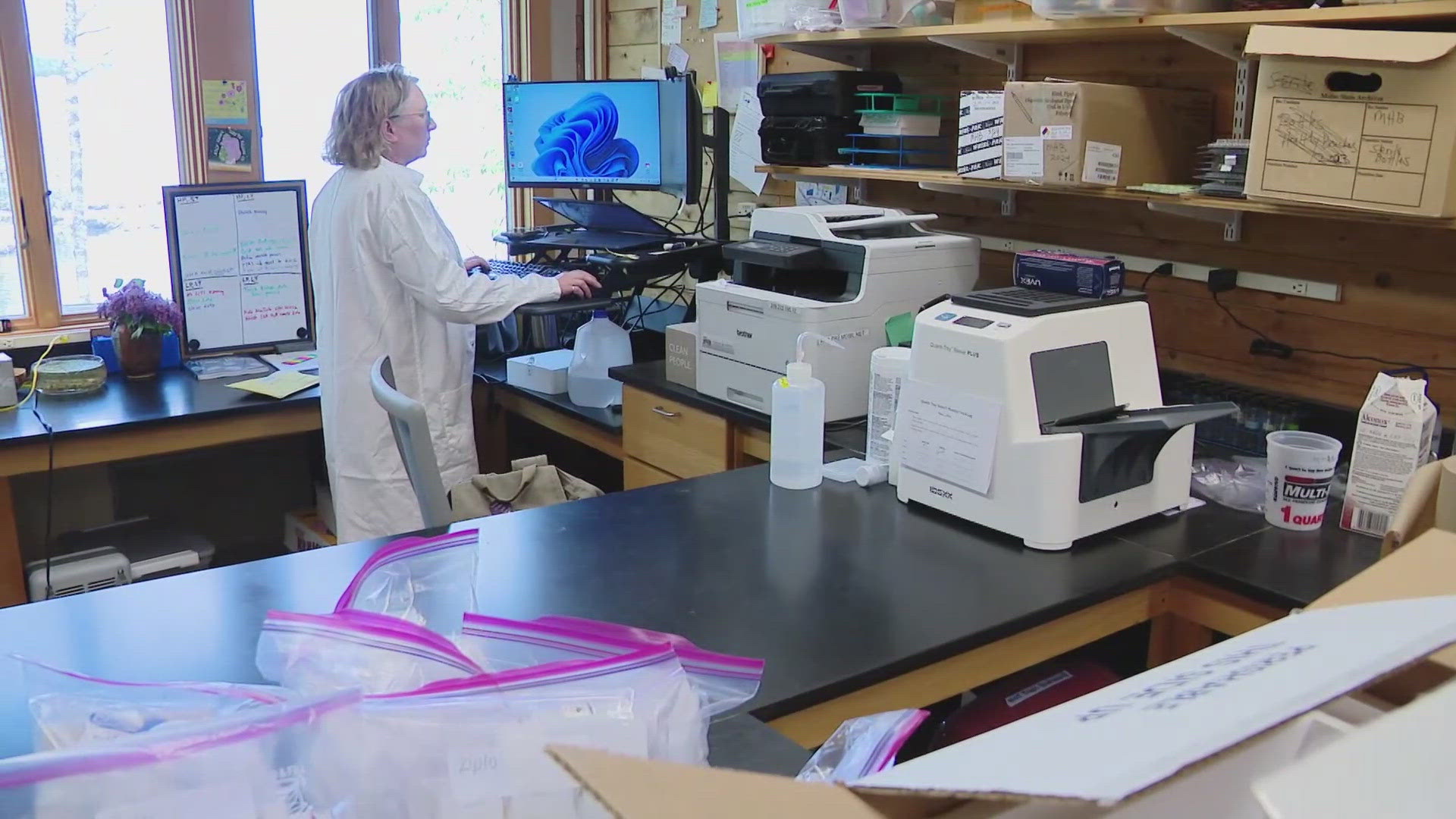BAR HARBOR, Maine — Researchers plan to test residential wells near several Hancock County schools to determine if their wastewater is causing the spread of PFAS chemicals.
Filtration systems were installed at Mount Desert High School several years ago after elevated levels of toxic chemicals were discovered in its drinking water.
Despite those steps, the toxins are showing up in the water supply of people near the school.
Now, experts want to pinpoint the contamination and see if more homeowners are at risk.
MDI Bio Lab scientists, like Jane Disney, are tracking a link between rural schools and PFAS chemicals contaminating nearby homeowners' drinking supplies.
"Where PFAS may be moving in the watershed, who else may be affected, and where should we prioritize our sampling," Disney explained.
Disney is an associate professor at the independent lab in Bar Habor. Over the past several years, scientists have identified elevated levels of toxic chemicals at homes near three Hancock County schools: Mount Desert Island High School, Tremont Consolidated School, and Trenton Elementary.
All campuses have water filtration systems after high levels were discovered in the water supply.
"But that doesn't mean the wastewater from schools that are coming into the septic systems and leech fields don't contain PFAS," Disney stated.
Scientists say cleaning supplies and floor wax commonly used in schools are made with PFAS chemicals that go through septic systems and seep into the groundwater. Mount Desert Island Regional School System Superintendent Mike Zboray said the district hopes to switch to PFAS-free alternatives.
A district committee is also considering spending $5 million to connect the school to municipal water and wastewater systems.
"The only way to get it away from the environment is to try a municipal system," Zboray stated.
Tremont has a history of PFAS contamination linked to a closed landfill. Scientists also want to find out if wastewater from the community's school, which is not connected to town water and sewer infrastructure, is also a source.
The lab is expanding water testing to homeowners about a mile from all three schools. Researchers will utilize dozens of test kits from Maine laboratories to take tap water samples.
Critical results will give researchers more comprehensive data as stricter national standards for PFAS go into effect in about three years. And an important opportunity to take protective action to help lower the impact of the toxic chemicals on the community's health.
"We live in a place where most of the island is a national park, which is there to preserve nature for all to see," Zboray explained.
David Madore, the deputy director of the Department of Environment Protection, released a statement to NEWS CENTER Maine.
"Once the DEP is aware of an exceedance of PFAS in a public water system, DEP staff review the results and evaluate whether any potential or known DEP-licensed sites exist in the vicinity that could contribute to PFAS impacts at the public water supply. If so, the DEP will typically sample those residential water supplies deemed at risk based on a site-specific evaluation which includes an assessment of the direction of groundwater flow, hydrogeology, and other factors. DEP reviewed results submitted by MDI Bio Lab for two residences near MDI High School which tested above Maine’s Interim Standard, the DEP retested the wells, and we subsequently paid for and installed a filter system at each of the two impacted residences. In instances where there are no potential or known DEP-licensed sites, we may sample residential water supplies based on the significance of the concentrations of PFAS," Madore said.
For homeowners who are considering testing their well water for PFAS, visit here.

